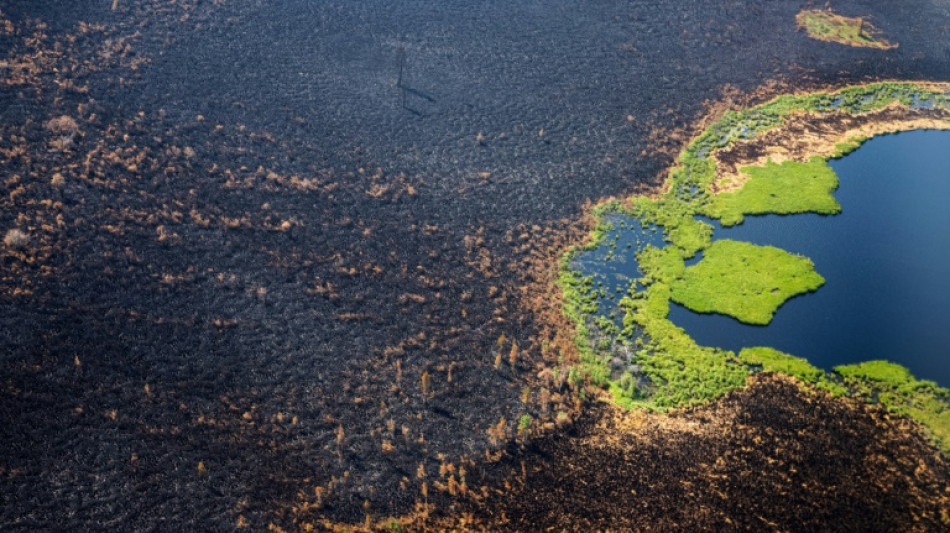
-
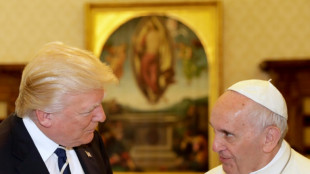 World leaders pay tribute to Pope Francis, dead at 88
World leaders pay tribute to Pope Francis, dead at 88
-
World leaders react to the death of Pope Francis
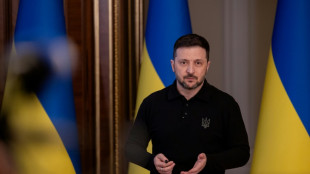
-
 Zimbabwe lead first Test despite Bangladesh spinner Mehidy's five wickets
Zimbabwe lead first Test despite Bangladesh spinner Mehidy's five wickets
-
Vatican postpones sainthood for 'God's influencer' after pope's death

-
 Pope's death prompts CONI to call for sporting postponements, minute's silence
Pope's death prompts CONI to call for sporting postponements, minute's silence
-
Stunned and sad, faithful gather at St Peter's to remember Francis
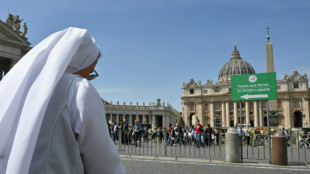
-
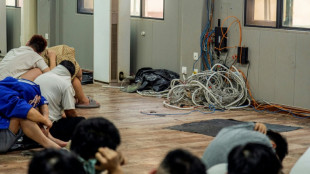 Asian scam centre crime gangs expanding worldwide: UN
Asian scam centre crime gangs expanding worldwide: UN
-
Davos meet founder Klaus Schwab steps down from WEF board
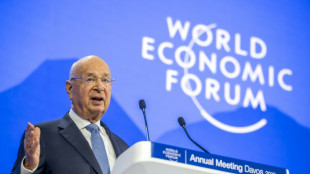
-
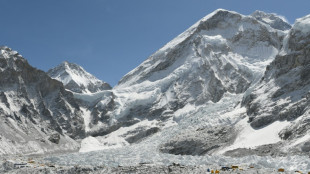 Himalayan snow at 23-year low, threatening 2 billion people: report
Himalayan snow at 23-year low, threatening 2 billion people: report
-
The beautiful game: Pope Francis's passion for football
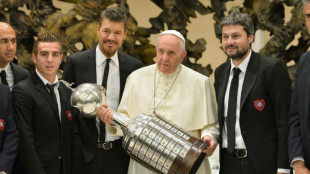
-
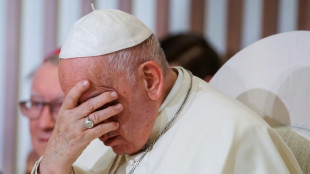 Clerical sex abuse: Pope Francis's thorniest challenge
Clerical sex abuse: Pope Francis's thorniest challenge
-
Pope Francis's delicate ties with politics in Argentina
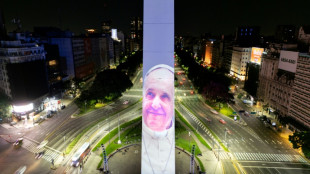
-
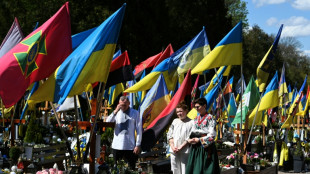 Russia resumes attacks on Ukraine after Easter truce
Russia resumes attacks on Ukraine after Easter truce
-
Pope Francis has died aged 88

-
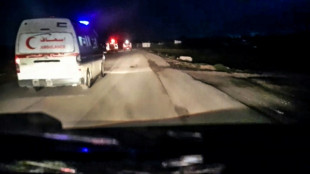 Gaza civil defence describes medic killings as 'summary executions'
Gaza civil defence describes medic killings as 'summary executions'
-
Francis: radical leader who broke the papal mould
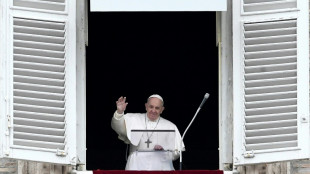
-
 Oscar stars, Max keeps mum, Sainz alive - Saudi GP talking points
Oscar stars, Max keeps mum, Sainz alive - Saudi GP talking points
-
Iyer, Kishan win back India contracts as Pant's deal upgraded

-
 Vance lands in India for tough talks on trade
Vance lands in India for tough talks on trade
-
Inside South Africa's wildlife CSI school helping to catch poachers
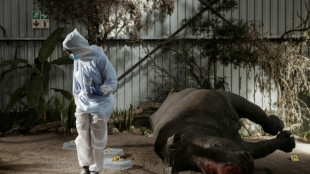
-
 Nigerian Afrobeat legend Femi Kuti takes a look inward
Nigerian Afrobeat legend Femi Kuti takes a look inward
-
Kim Kardashian: From sex tape to Oval Office via TV and Instagram

-
 Vance in India for tough talks on trade
Vance in India for tough talks on trade
-
Thunder crush Grizzlies as Celtics, Cavs and Warriors win

-
 Vance heads to India for tough talks on trade
Vance heads to India for tough talks on trade
-
China slams 'appeasement' of US as nations rush to secure trade deals
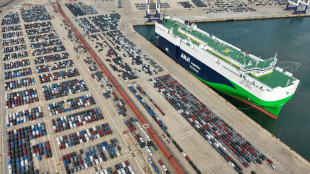
-
 'Grandpa robbers' go on trial for Kardashian heist in Paris
'Grandpa robbers' go on trial for Kardashian heist in Paris
-
Swede Lindblad gets first win in just third LPGA start

-
 Gold hits record, dollar drops as tariff fears dampen sentiment
Gold hits record, dollar drops as tariff fears dampen sentiment
-
As Dalai Lama approaches 90, Tibetans weigh future

-
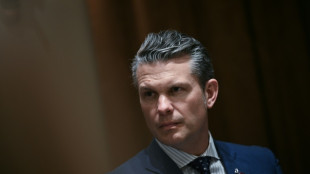 US defense chief shared sensitive information in second Signal chat: US media
US defense chief shared sensitive information in second Signal chat: US media
-
Swede Lingblad gets first win in just third LPGA start

-
 South Korea ex-president back in court for criminal trial
South Korea ex-president back in court for criminal trial
-
Thunder crush Grizzlies, Celtics and Cavs open NBA playoffs with wins

-
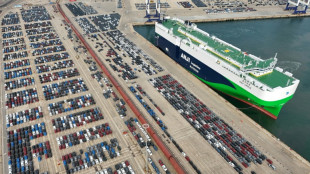 Beijing slams 'appeasement' of US in trade deals that hurt China
Beijing slams 'appeasement' of US in trade deals that hurt China
-
Trump in his own words: 100 days of quotes

-
 Padres say slugger Arraez 'stable' after scary collision
Padres say slugger Arraez 'stable' after scary collision
-
Trump tariffs stunt US toy imports as sellers play for time

-
 El Salvador offers to swap US deportees with Venezuela
El Salvador offers to swap US deportees with Venezuela
-
Higgo holds on for win after Dahmen's late collapse

-
 Moolec Science Enters Into Transformational Transaction Expanding Across Multiple Technology Platforms
Moolec Science Enters Into Transformational Transaction Expanding Across Multiple Technology Platforms
-
El Salvador's president proposes prisoner exchange with Venezuela

-
 Gilgeous-Alexander, Jokic, Antetokounmpo named NBA MVP finalists
Gilgeous-Alexander, Jokic, Antetokounmpo named NBA MVP finalists
-
Thomas ends long wait with playoff win over Novak

-
 Thunder rumble to record win over Grizzlies, Celtics top Magic in NBA playoff openers
Thunder rumble to record win over Grizzlies, Celtics top Magic in NBA playoff openers
-
Linesman hit by projectile as Saint-Etienne edge toward safety

-
 Mallia guides Toulouse to Top 14 win over Stade Francais
Mallia guides Toulouse to Top 14 win over Stade Francais
-
Israel cancels visas for French lawmakers

-
 Russia and Ukraine trade blame over Easter truce, as Trump predicts 'deal'
Russia and Ukraine trade blame over Easter truce, as Trump predicts 'deal'
-
Valverde stunner saves Real Madrid title hopes against Bilbao


Arctic fires could release catastrophic amounts of C02: study
Global warming is responsible for bigger and bigger fires in Siberia, and in the decades ahead they could release huge amounts of carbon now trapped in the soil, says a report out Thursday.
Researchers fear a threshold might soon be crossed, beyond which small changes in temperature could lead to an exponential increase in area burned in that region.
In 2019 and 2020, fires in this remote part of the world destroyed a surface area equivalent to nearly half of that which burned in the previous 40 years, said this study, which was published in the journal Science.
These recent fires themselves have spewed some 150 million tonnes of carbon into the atmosphere, the scientists estimate, contributing to global warming in what researchers call a feedback loop.
The area above the Arctic circle heats up four times faster than the rest of the planet and "it is this climate amplification which causes abnormal fire activity," David Gaveau, one of the authors of this study, told AFP.
Researchers concentrated on an area five and a half times the size of France and with satellite pictures observed the surface area burned each year from 1982 to 2020.
In 2020, fire charred more than 2.5 million hectares (6.2 million acres) of land and released, in CO2 equivalent, as much as that emitted by Spain in one year, the scientists concluded.
That year, summer in Siberia was on average three times hotter than it was in 1980. The Russian city of Verkhoyansk hit 38 degrees Celsius in summer, a record for the Arctic.
The average air temperature in summer, from June to August, surpassed 10 degrees Celsius only four times in the period under study: in 2001, 2018, 2019 and 2020. These turned out to be the years with the most fires too.
The team fears that this threshold at 10 degrees Celsius will be a breaking point that is surpassed more and more often, said Gaveau.
"The system goes out of whack, and for a small increase beyond 10 degrees Celsius we suddenly see lots of fires," he said.
- Source of permafrost -
Arctic soils store huge amounts of organic carbon, much of it in peatlands. This is often frozen or marshy, but climate warming thaws and dries peatland soil, making large Arctic fires more likely.
Fire damages frozen soil called permafrost, which releases even more carbon. In some cases it has been trapped in ice for centuries or more.
"This means that carbon sinks are transformed into sources of carbon," Gaveau said.
"If there continue to be fires every year, the soil will be in worse and worse condition. So there will be more and more emissions from this soil, and this is what is really worrisome."
An elevated amount of CO2 was released in 2020 but things "could be even more catastrophic than that in the future," said Gaveau, whose company, TheTreeMap, studies deforestation and forest fires.
Higher temperatures have a variety of effects: more water vapor in the atmosphere, which causes more storms and thus more fire-sparking lightning. And vegetation grows more, providing more fuel for fire, but it also breathes more, which dries things out.
- Different scenarios -
Looking ahead to the future, the study analyzed two possible scenarios.
In the first one, nothing is done to fight climate change and temperatures keep rising steadily. In this case fires of the same gravity as in 2020 may occur every year.
In the second scenario, concentrations of greenhouse gases stabilize and temperatures level out by the second half of this century. In this case severe fires like those of 2020 would break out on average every 10 years, said Adria Descals Ferrando, the main author of the study.
Either way "summers with fires like those of 2020 are going to be more and more frequent starting in 2050 and beyond," said Gaveau.
B.Shevchenko--BTB



